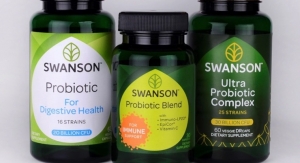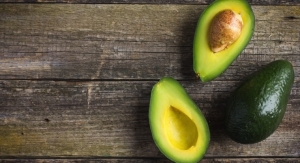12.20.16
The U.S. FDA has approved a petition filed by Ingredion Incorporated, Westchester, IL, resulting in a qualified health claim that will enable food manufacturers to communicate the relationship between high-amylose maize resistant starch and a reduced risk of Type 2 diabetes on the packages of conventional foods.
“Investing in the research to obtain a qualified health claim is a strong indication of Ingredion’s long-term commitment to advancing its Nutrition Innovation programs to deliver ground breaking, relevant and clinically-substantiated ingredients,” said Anthony DeLio, chief innovation officer for Ingredion. “Addressing consumers’ top health and nutrition concerns with ingredients gives them the ability to make informed choices to positively impact their health.”
In reviewing Ingredion’s petition, the FDA concluded that there was scientific evidence for a qualified health claim for high-amylose maize resistant starch and reduced risk of Type 2 diabetes, while ensuring the claim was appropriately worded so as not to be misleading:
“High-amylose maize resistant starch may reduce the risk of Type 2 diabetes. FDA has concluded that there is limited scientific evidence for this claim.”
“High-amylose maize resistant starch, a type of fiber, may reduce the risk of Type 2 diabetes. FDA has concluded that there is limited scientific evidence for this claim.”
These claims can be used on the packaging of conventional foods, as defined by 21 CFR 101.14. Such products include bakery items, nutrition bars, cereals and pastas among others.
“Ingredion’s HI-MAIZE resistant starch is an ideal ingredient for manufacturers looking to address growing consumer demand for foods that can be used as part of a healthy diet,” said Igor Playner, vice president of innovation and strategy for Ingredion. Lorraine Niba, PhD, global director, nutrition springboard added, “We believe the new qualified health claim is a positive development for consumers as it provides another pragmatic approach to potential diabetes risk reduction through everyday foods.”
The qualified health claim petition was based on eight clinical trials conducted at academic institutions and research organizations, which assessed the impact of HI-MAIZE high-amylose maize resistant starch on insulin sensitivity and other biomarkers. HI-MAIZE resistant starch is a type of dietary fiber derived from a variety of corn that is high in amylose starch.
“Investing in the research to obtain a qualified health claim is a strong indication of Ingredion’s long-term commitment to advancing its Nutrition Innovation programs to deliver ground breaking, relevant and clinically-substantiated ingredients,” said Anthony DeLio, chief innovation officer for Ingredion. “Addressing consumers’ top health and nutrition concerns with ingredients gives them the ability to make informed choices to positively impact their health.”
In reviewing Ingredion’s petition, the FDA concluded that there was scientific evidence for a qualified health claim for high-amylose maize resistant starch and reduced risk of Type 2 diabetes, while ensuring the claim was appropriately worded so as not to be misleading:
“High-amylose maize resistant starch may reduce the risk of Type 2 diabetes. FDA has concluded that there is limited scientific evidence for this claim.”
“High-amylose maize resistant starch, a type of fiber, may reduce the risk of Type 2 diabetes. FDA has concluded that there is limited scientific evidence for this claim.”
These claims can be used on the packaging of conventional foods, as defined by 21 CFR 101.14. Such products include bakery items, nutrition bars, cereals and pastas among others.
“Ingredion’s HI-MAIZE resistant starch is an ideal ingredient for manufacturers looking to address growing consumer demand for foods that can be used as part of a healthy diet,” said Igor Playner, vice president of innovation and strategy for Ingredion. Lorraine Niba, PhD, global director, nutrition springboard added, “We believe the new qualified health claim is a positive development for consumers as it provides another pragmatic approach to potential diabetes risk reduction through everyday foods.”
The qualified health claim petition was based on eight clinical trials conducted at academic institutions and research organizations, which assessed the impact of HI-MAIZE high-amylose maize resistant starch on insulin sensitivity and other biomarkers. HI-MAIZE resistant starch is a type of dietary fiber derived from a variety of corn that is high in amylose starch.


















